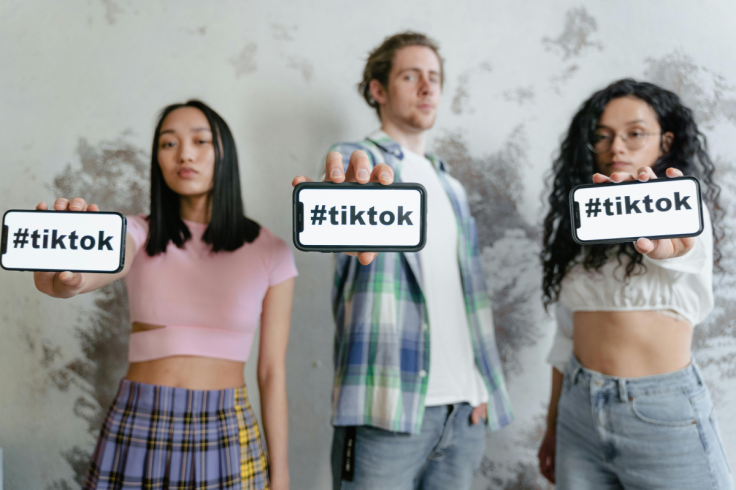What To Expect From The US-China TikTok Deal: Who Will Be The New Owners And Will It Affect Influencer Algorithm?
Yale's Samm Sacks warned, 'The details are really going to matter' for security

On 23 September 2025, the White House unveiled details of a landmark US-China TikTok deal, designed to avert a nationwide ban of the social media app. This agreement stems from a 2024 law that required ByteDance, TikTok's China-based parent company, to divest its US operations. The law was upheld by the US Supreme Court on 17 January 2025.
President Donald Trump, following talks with China's President Xi Jinping, will sign off on the agreement on 26 September 2025. Control will shift to a consortium of American investors including Oracle's Larry Ellison and potentially Rupert and Lachlan Murdoch, amid growing concerns over data security and content moderation.
With TikTok boasting 183 million monthly active users in the US, the retraining of its algorithm on domestic data alone promises continuity for creators, while sparking debates on cultural shifts and reach.
Trump Approves TikTok US Sale to Billionaire Group
The deal values TikTok's US assets at £65 billion ($100 billion), with 80% ownership shifting to US investors and ByteDance retaining under 20%. Key stakeholders include Oracle, led by Larry Ellison, alongside Silver Lake Partners and Andreessen Horowitz. Rupert and Lachlan Murdoch are reportedly eyeing a stake via Fox Corporation.
White House Press Secretary Karoline Leavitt confirmed the structure ensures 'majority American ownership' to address national security risks. The agreement follows months of negotiations, with Trump extending deadlines since the law's April 2024 signing by Joe Biden. ByteDance, valued at over £215 billion ($330 billion) in August 2025, issued a statement thanking leaders for preserving access and pledging compliance to keep the app available to US users.
The US government anticipates a multibillion-dollar fee, without acquiring any equity. Supporters hail the deal as a win for digital sovereignty, while critics question enforcement given Beijing's lack of formal confirmation. Regulatory approvals from both countries remain pending, but optimism runs high according to Politico.
Oracle Takes Charge of TikTok Algorithm
Oracle will license and oversee the algorithm's retraining on US-only data, stored on American servers under Project Texas. Leavitt stated it will be 'secured, retrained, and operated in the United States, outside of ByteDance's control,' partnering with the government. This carved-off version prohibits cooperation on recommendations, in line with the ban-or-sale statute.
White House Press Secretary Karoline Leavitt said TikTok’s algorithm “will be secured, retrained, and operated in the United States, outside of ByteDance’s control,” under a deal expected to be finalized this week. The forced sale follows months of political pressure, much of it… pic.twitter.com/KfKMPSG3H5
— Drop Site (@DropSiteNews) September 22, 2025
China classifies the algorithm as export-controlled technology, blocking outright sale but allowing licensing, experts note. The For You Page, powered by machine learning that predicts retention via likes and watch time, could shift to prioritise American norms. Global content will stay visible in both directions, easing user transition.
No app redownload is needed, but retraining based on 183 million US users' data may refine individual feeds, according to eMarketer. Yale's Samm Sacks warned, 'The details are really going to matter' for security.
New Ownership Shifts Influencer Reach and Content Diversity
Influencers face potential changes in reach as the algorithm adapts to US-centric data, possibly limiting exposure to diverse content. Experts predict less ideological variety if moderation tightens under new owners, some of whom are linked to Trump donors, raising concerns about boycotts from progressive creators.
USA Today reports users could notice functionality dips without full algorithm transfer, impacting viral trends key to influencer growth. Yet, 2025 figures show TikTok's edge with 32.9% US penetration, outpacing rivals. This stability could preserve billions in creator earnings. David Greene of the Electronic Frontier Foundation cautioned against US propaganda risks post-deal.
The 2025 US-China TikTok agreement attempts to balance security with innovation. For influencers, it's a turning point: adapt or explore alternatives. As ownership solidifies, expect federal refinements to shape the next wave of digital trends.
© Copyright IBTimes 2025. All rights reserved.





















